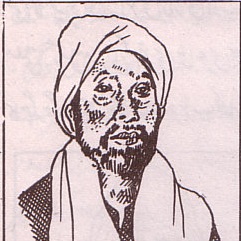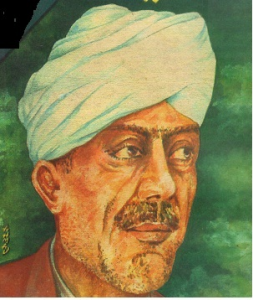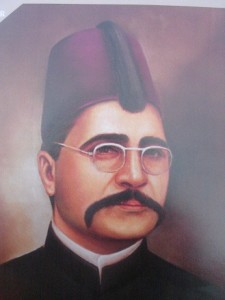Peace Watch » Editor's Take » Kashmir Youth Heading Where?
Kashmir Youth Heading Where?
I was shocked! Have, I a reason to get shocked on discovering that our new generation is detached from its past. It knows not what it ought to know. Have I a right to expect young people to think as I do; to believe in what I believe in or to love what I love. If I am not becoming too didactic and want to foist my ideas on the techno savvy generation. These questions bothered me, after having had a marathon session of interaction with a group of young students.
In connection with the World Book Day, Debating Society of a premier college, with a scintillating past, invited me to share my experiences with students on book reading and book reviewing. I have not been a student of this college but its list of illustrious alumni is so varied and variegated that it is impossible to think of contemporary Kashmir without them. Having been crucible of literary, cultural and political movements, it has produced leaders that shook citadels of monarchy and autocracy and brought down towers of hubris and arrogance of power like a pack of cards.
With history of the college lurking in my mind, in my endeavor to reach out to the younger generation and establish an intimate contact with them, I started my interaction with the students by asking them about some great men of our land that I believe have provided warp and woof for shaping the modern Kashmir personality. Like a class teacher, I asked the students; those of you who know the answers of the questions should raise their hands.
My first question: Have you heard the name of Mulla Tahir Ghani- those of you who have heard his name may raise their hands. In a gathering of three hundred boys and girls not a single student raised his hand…It was shocking.
The reason for asking this question was that to our generation  Ghani was an inspiration, a source of strength and symbol of self-esteem and dignity. He throughout his life never waited on princes, nor wrote a single Qasida (eulogy) in praise of any nobleman or king. In his hundred thousand verses, there is not a single quadrant or couplet in praise of the nobility. Iqbal on his visitation to the poet in Javed Nama says:
Ghani was an inspiration, a source of strength and symbol of self-esteem and dignity. He throughout his life never waited on princes, nor wrote a single Qasida (eulogy) in praise of any nobleman or king. In his hundred thousand verses, there is not a single quadrant or couplet in praise of the nobility. Iqbal on his visitation to the poet in Javed Nama says:
“ Rumi said, ‘Observe what is now coming;
give not your heart to what has passed, my son.
That poet of colourful song, Tahir Ghani,
whose poverty abounds in riches inward and outward,
drunk with eternal wine, is chanting a melody
in the presence of the Sayyid sublime, noble of nobles, commander of Persia,
whose hand is the architect of the destiny of nations.”
Ghani for denying joining the Mogul Emperor’s court, instead of obeying the orders of the governor Saif Khan, preferring declaring himself as madman has been for past four hundred years criss-crossing throughout the Kashmir’s political narrative as a symbol of resistance against the Moguls occupying Kashmir by deceit. Teachers and politicians’ alike told us inculcate self-esteem and dignity in yourself like Ghani Kashmiri and do not bow before the powers of arrogance- the Pitamber Nath Dhar Fani a teacher in our school often reminded us at the morning assemblies.
This great Persian poet of ‘vivid imagination’, ‘high soaring intellect’, was not hero to people of his faith only but one and all. In fact, during sixties Dina Nath Nadim reintroduced him to the masses through his famous light and sound opera Assi Aiyas Ta Assi Aasav.( We were there we shall be there). So deep was imprint of the poet on our generation that he very subtly had, become a role model for us.
Quoting famous verse of Mehjoor that mentions names of three great Kashmiris, Kalhan, Ghani and Sarafi- counted as icons of our identity,
I asked the young students if they had heard the name of Sheikh Yaqab Sarfi. Not a single hand was raised in approbation- no student had heard the name of this man of letters who for having written a series of five masnavis (epics) ‘in imitation of his Abdur Rahman Jami was known as Jami of Kashmir. For his eloquent poetry, and art of composing Sarfi had earned a place of distinction in whole of South Asia. Known for his erudition in most parts of India he had earned place respectability for his land. True, during our school days, learning Persian language was no more in fashion but most of the teacher endeavored to connect the students to their culture and heritage thus imbibed a sense of belonging in them to their land of birth and sharpened their patriotism.
If they had heard about Abdul Ahad Azad, was my third question to this young gathering of boys and girls. It was saddening to see only two boys and a girl raised their hands in affirmation. Just a couple of years back Abdul Ahad Azad birth centenary was observed by the state government with enthusiasm and fervor, elite seminars were held and conferences were organized. Massive hoardings with best verses from his poetry were erected all over the valley. It was disappointing to note that the yearlong celebrations had also failed to attract young generation towards great revolutionary poet- our own Faiz Ahmed Faiz and Habib Jalib.
It came as a rudest shock to me on learning in a gathering of hundreds of students that only four girls and two boys were reading Iqbal. 
The young generation distancing itself from its roots and delinking itself from its culture is dangerous- it has the potential of eroding even the well-entrenched societies. Culture says Edward W Said, ‘is a source of identity and rather a combative one.’ How to connect young generation to their traditions and culture- the elements that shape personality of a nation is moot point for our intellectuals.
( Allama Muhammad Iqbal- Great Kashmir)
THE ARTICLE WAS PUBLISHED IN GREATER KASHMIR ON 30-4-12, There were some typos.
Filed under: Editor's Take · Tags: Abdul Ahad Azad, Ghani Kashmiri, Kashmir, Kashmir Youth







